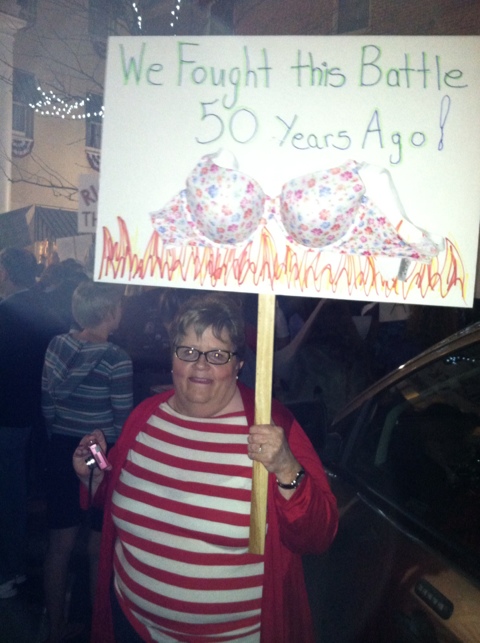Today was Gettysburg’s graduation day, along with several other schools. President Obama spoke at Morehouse College and countless students threw their hats into the air at any number of institutions after deftly moving their tassels from right to left. With two siblings and three degrees of my own, I’ve seen my fair share of graduation ceremonies. There are plenty of similar elements, a commencement speaker encouraging graduates to go out and use their educations to change or save the world, a throwing of the caps, parading faculty, Harry Potter robes, Pomp and Circumstance (literally), and more, but each one also has the little bits that make it feel special.
This year, I’m leaving Gettysburg along with my students, so instead of just being a member of the faculty, it’s a little like I’m graduating, too, which makes it special. This class of graduating seniors also included some of my first students at Gettysburg, and by virtue of teaching an upper level required class three of my four semesters here, I had tortured 46 of the approximately 50 graduates leaving with an Economics major. They were my first students in Methods, my first students in Labor, and even a few wayward upper classmen who decided Principles of Micro was an easy way to round out their college career. Today was full of hugs and goodbyes and thanks and though I didn’t get to see everyone, I’m so glad I stayed for it. No one would have faulted me for bailing early, for getting home to Colorado, for leaving a place that no longer had a place for me, but it is days like today that I’m reminded of how important pomp and circumstance are, how important goodbyes are, how important are those markers of change to help guide us through the tumult and madness.
Teaching is often a field where feedback is in short supply, and some even call it thankless, but this weekend was one filled with joy and thanks. I talked to so many parents and brothers and sisters and cousins who told me thank you, who said they had heard so much about me, who wanted to make sure I knew that I had had an impact on their graduate’s life, on their learning, on their development. It was really wonderful to hear, and despite my excitement for summer in the mountains and Lafayette, it made leaving a little bit sweeter, and a little bit harder.
Each year I’ve taught, there have been a few students who have kept in touch, via facebook or continuos random run-ins at Boulder coffee shops, and I really hope that many of this year’s #gburg2013 grads continue to let me know how they’re doing. Congratulations, Gettysburgians!
